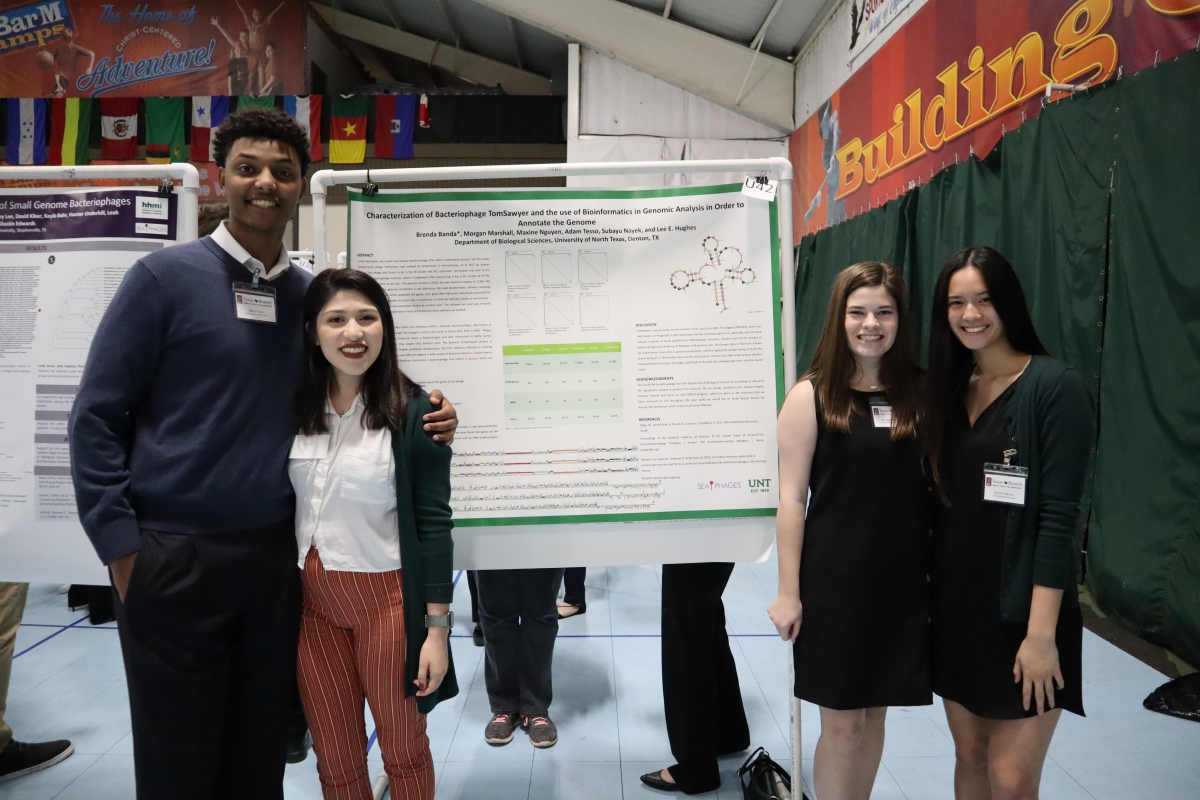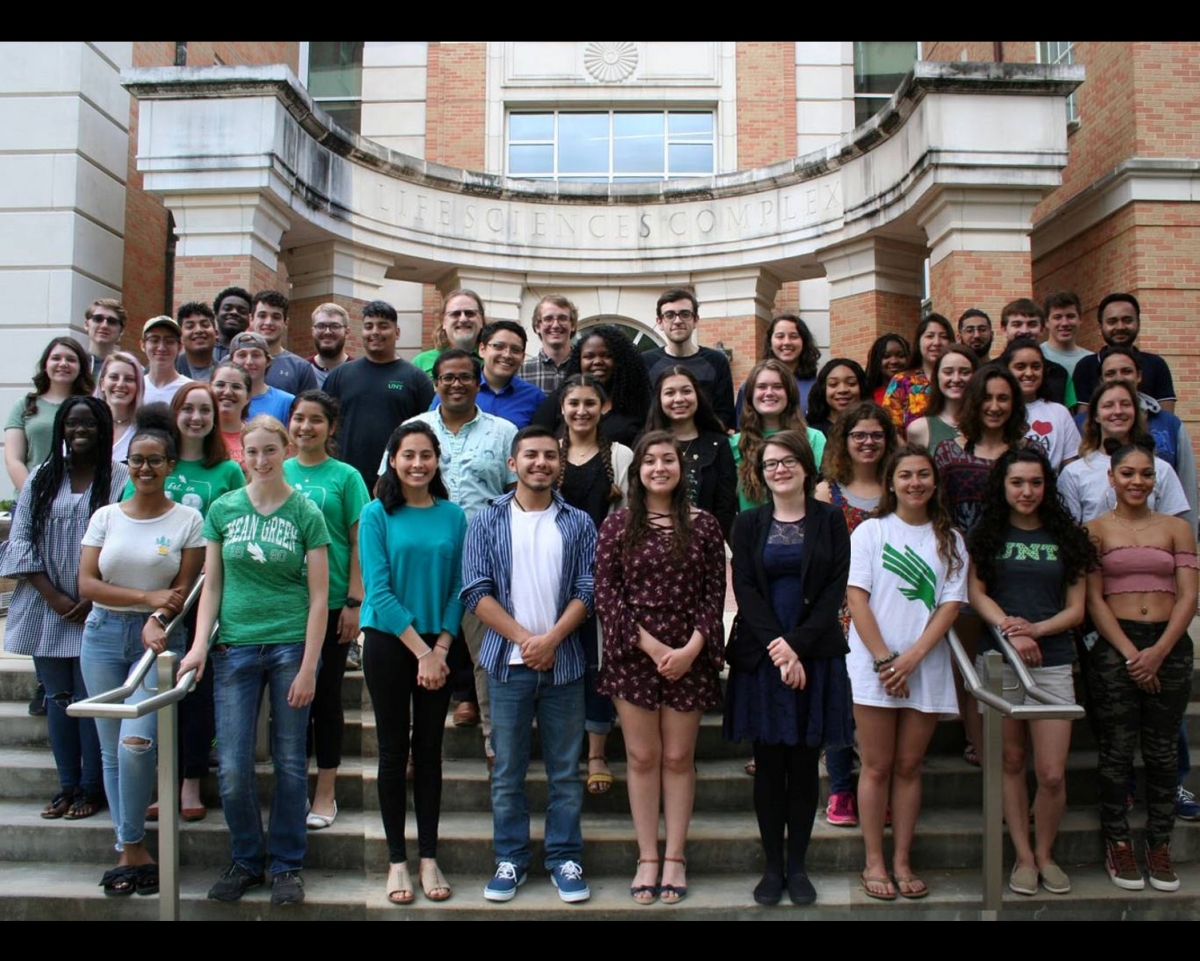PHAGES
PHAGES (short for Phage Hunters Advancing Genomics and Evolutionary Science) at UNT is an opportunity for freshmen to participate in scientific research during their first year in college. The UNT Research magazine recently featured a story on the UNT PHAGES program and several of our successful graduates.
PHAGES Program Introductory Video

In the PHAGES program, students conduct research on viruses that infect bacteria, which are known as bacteriophages or simply phages. Research on these viruses can help us to understand basic biological properties of viruses and their interaction with their bacterial hosts as well as apply what it learned to new strategies for controlling harmful bacteria. One such application is phage therapy, which can use phages to help stop bacterial infections that do not respond to antibiotic treatment. Each student in the UNT PHAGES program has the opportunity to isolate their own unique bacteriophage from soil samples. Over the two courses in the program, participants learn the laboratory and bioinformatic skills necessary to understand more about the phage isolates found by students in the class.
The PHAGES program consists of two courses: BIOL 1750 - Introductory Biology Research
Laboratory I (2 SCH) and BIOL 1755 - Introductory Biology Research Laboratory II (1
SCH). BIOL 1750 counts toward the freshman biology laboratory requirements for students
in the Department of Biological Sciences and can be take with BIOL 1710 - Biology
for Science Majors I or after. Freshmen may start the PHAGES program in either the
fall or spring semester of their freshm an year.
an year.
The PHAGES program offers freshmen the chance to start experiencing research very early in their academic career. This can have many benefits for participants, including learning new skills and being able to apply what they learn in their biology courses to actual experimental situations. PHAGES students also have a stronger background in research that can help them be better candidates for internships and other opportunities later in their undergraduate career and when applying to professional programs.
For course enrollment information or other questions about the UNT PHAGES program, new or continuing UNT students should contact Dr. Lee Hughes at lhughes@unt.edu.
UNT PHAGES is a part of the national SEA-PHAGES program which is sponsored by the Howard Hughes Medical Institute. More information about the national program can be found at https://www.seaphages.org/
